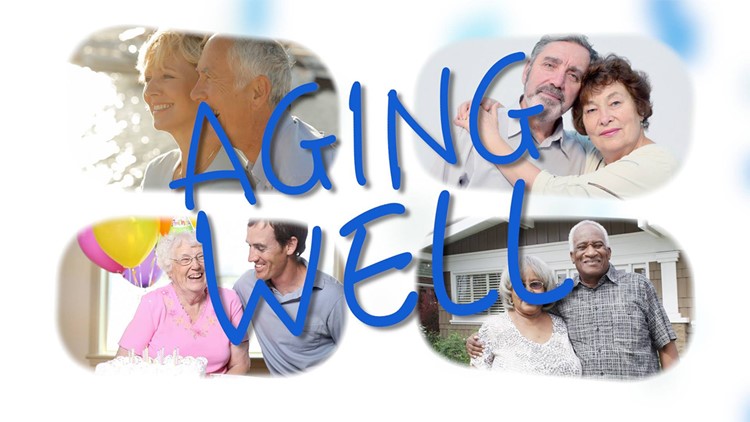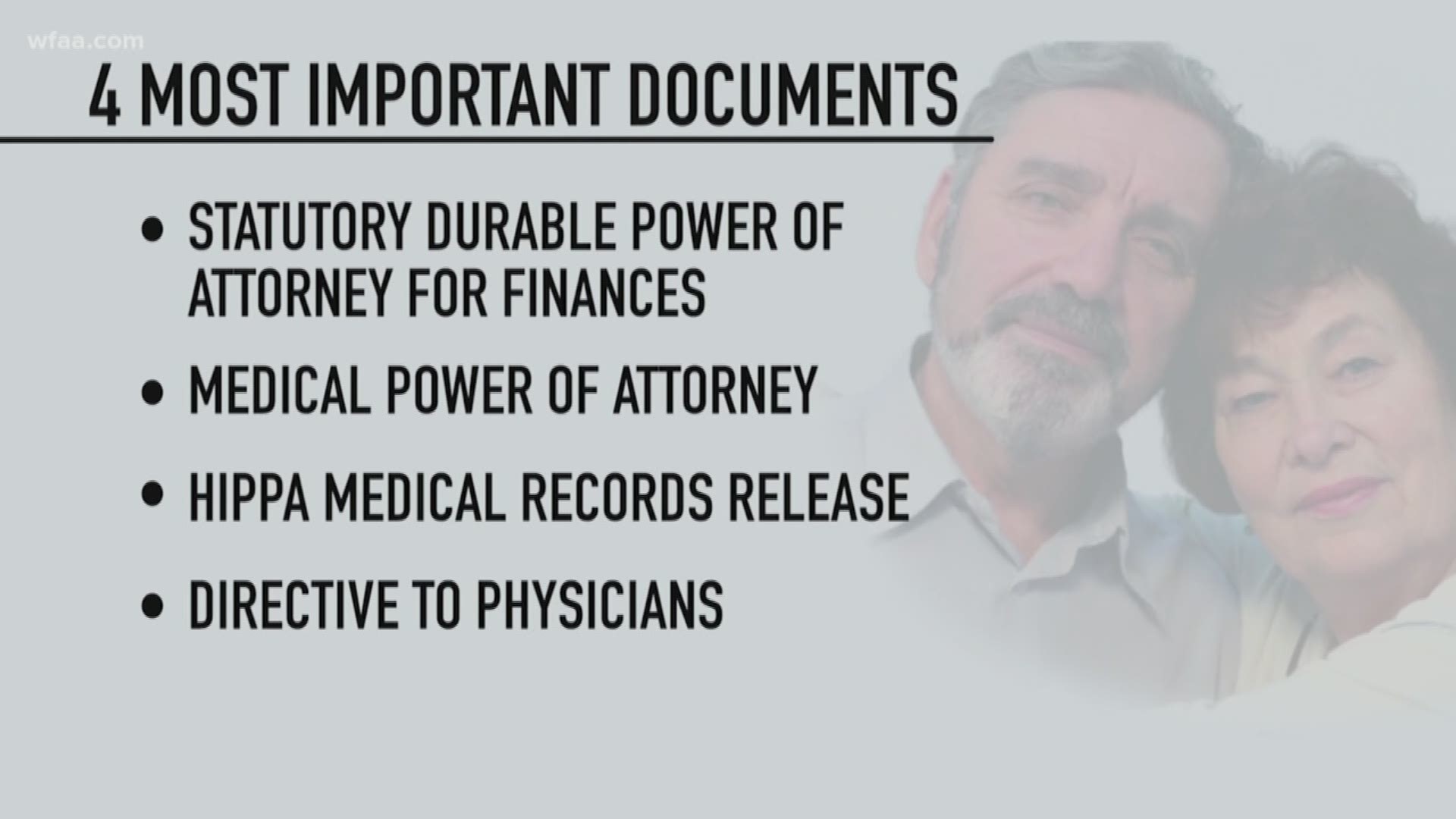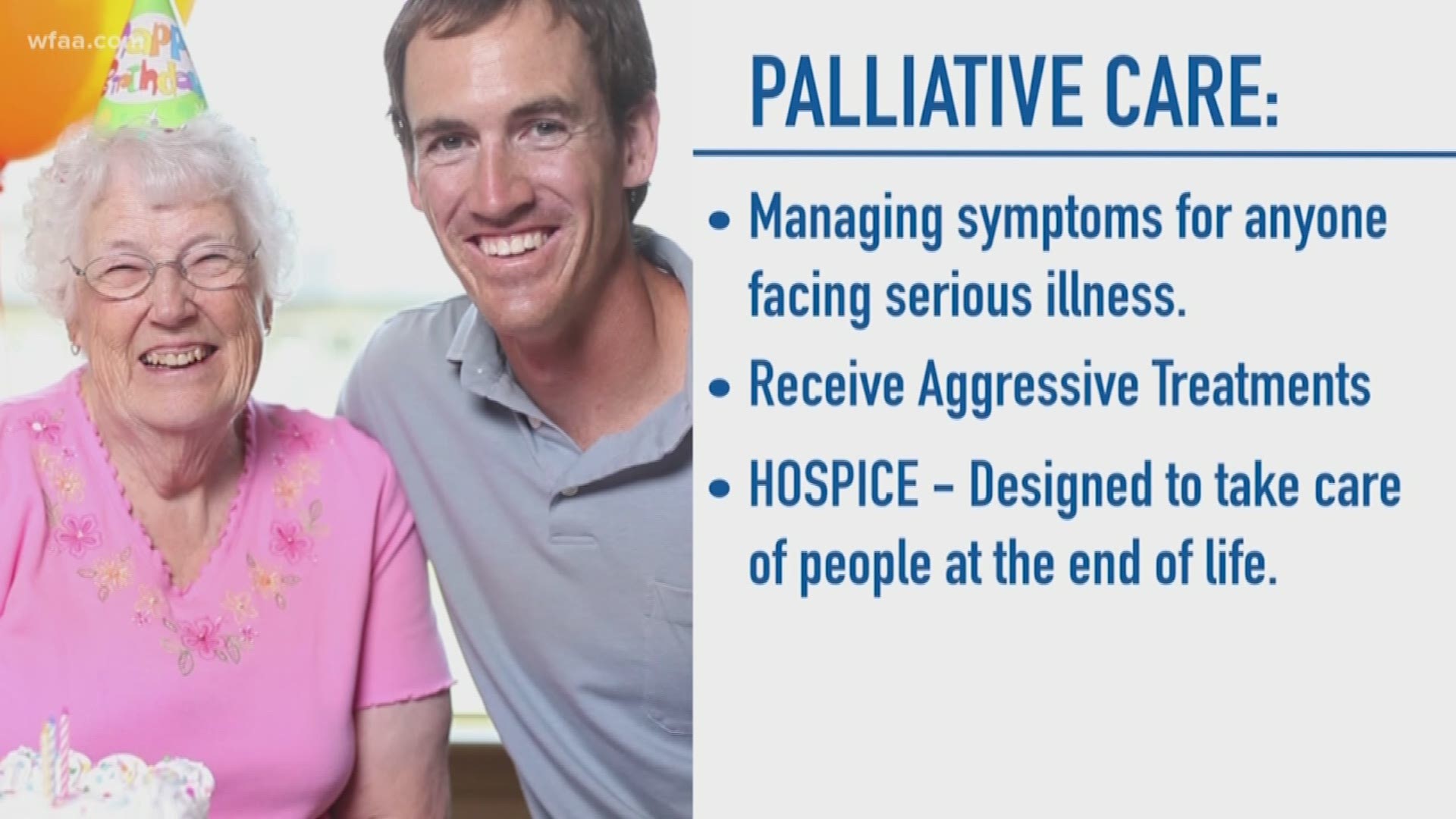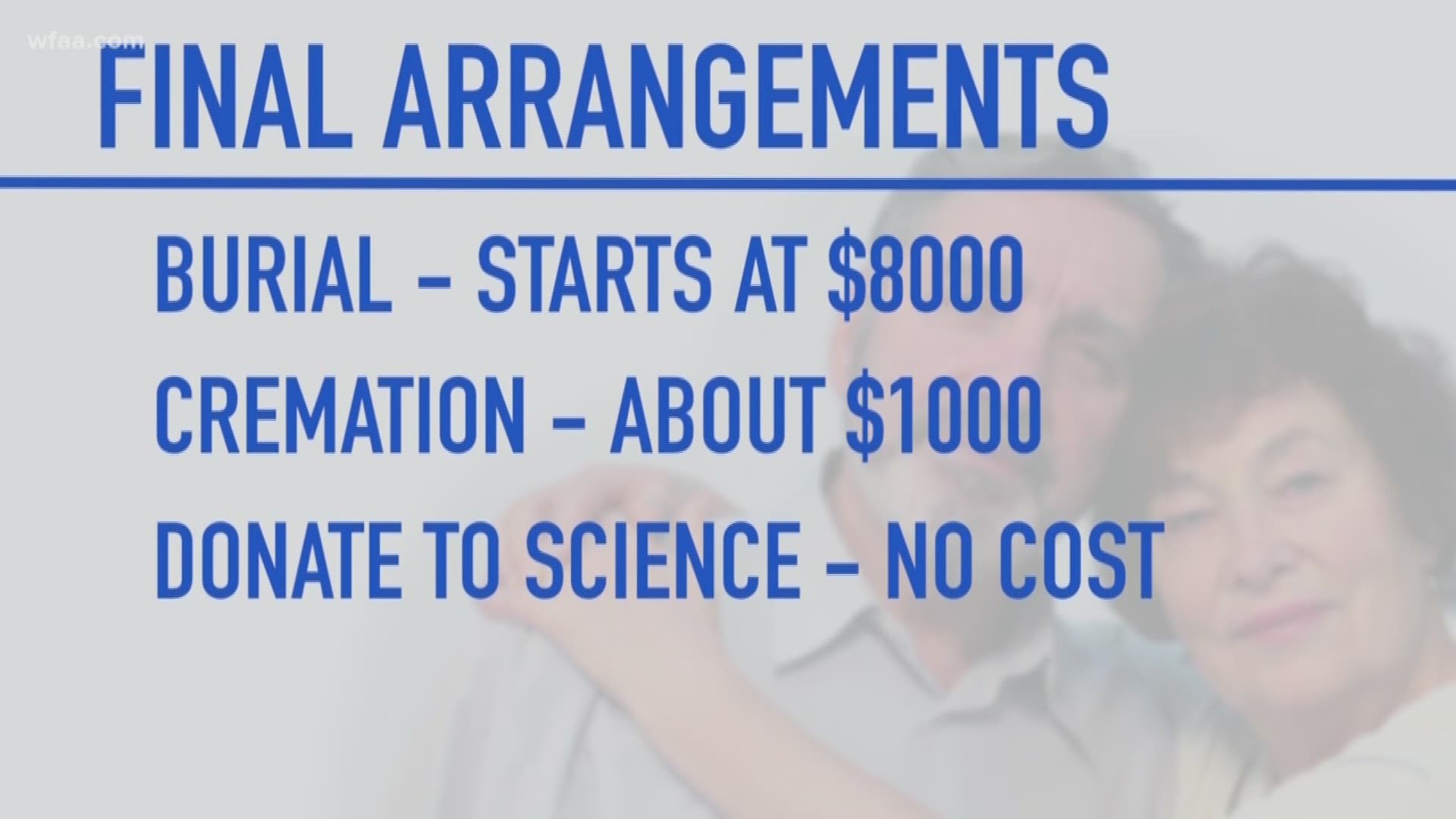10,000 people in the United States will turn 65 every day until the year 2029. Baby boomers are aging and as they do, here are some tips on how we can take care of our loved ones.
Proper Planning
The four important documents to gather:
- Statutory durable power of attorney for finances
- Medical power of attorney
- HIPPA medical records release
- Directive to physicians
Palliative care vs. Hospice care
Palliative care:
- Managing symptoms for anyone facing serious illness
- Receive aggressive treatments
Hospice: Designed to take care of people at the end of life
How does it work?
- Doctor recommends hospice and writes an order
- Patient has to meet certain criteria-- Medicare
- Diagnosis of 6 months or less
How can you help? If you're interested in making a donation to the Murchison Patient Fund, go here. The patient fund helps patients and families with non-clinical needs like sheets for hospital beds, utility bills, and Christmas gifts for younger patients with families.
Texas Legal Hospice, another nonprofit resource you may consider donating to. They will help low-income people receive legal counsel for Advance Care Planning and even help with getting health and other benefits. This can be especially helpful when there are tense family situations and diminished capacity.
Retirement living for seniors
There are a lot of options when it comes to retirement living for seniors. The decision on where to put them really depends on what type of assistance they need on a daily basis.
- Independent living: A community of apartment type homes, fully equipped with kitchens and a community. You're doing your own cooking and cleaning, etc.
- Assisted living: Doctors come to your loved ones, monitor blood sugar levels, administer medicine
- Skilled nursing: Nurses are available to seniors around the clock
- Long term care: For people who need help bathing, dressing
How to choose?
- Ask about on-site security
- When it comes to cost, there's a huge range in price
- Tour the facilities yourself
To weigh some of your options in depth, visit Medicare.gov.
Knowing your parents' wishes
Having this talk with your parents may feel awkward but it's best to do while everyone can still communicate effectively.
Some things to consider from a cost standpoint with averages in North Texas:
- Burial: Starts at $8,000
- Cremation: About $1,000
- Donating to science: No cost
Experts recommend designating a family leader or a point person to deal with conference calls with your parents' doctors and attorneys.







